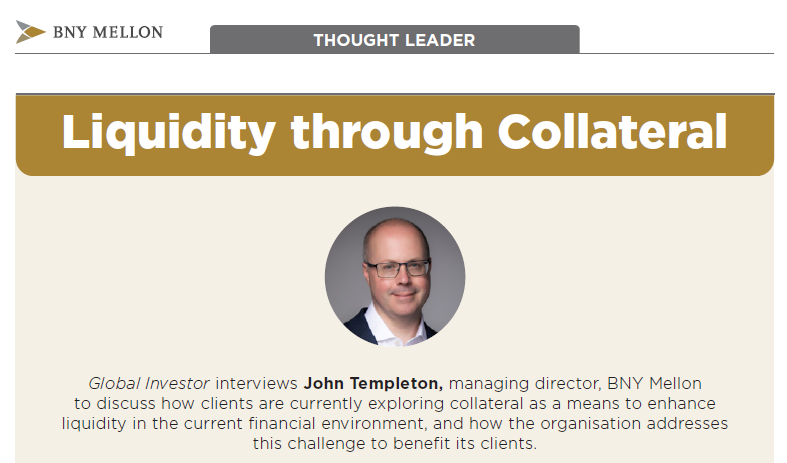Euronext Series Part Three: Europe shows resilience in the face of economic pressures

Euronext hosted in January 2023 the first Euronext Markets Insight conference in the impressive Pavillon Elysee on the famous Avenue des Champs Elysees in Paris. The Euronext Markets Insight Conference was the Group’s first of a series of European conferences dedicated to Derivatives, Index and ETF activities.
The conference opened with Jean-Claude Trichet, Former President of European Central Bank and Honorary Governor of the Banque de France, discussing the changing European economic environment.
Euronext chief executive Stephane Boujnah also discussed the role that the enlarged Euronext plays in a changing European finance industry as the second equity derivatives franchise in Europe.
This position has been underlined by the recent launch of new products such as a futures contract on the CAC 40 ESG, the extended maturities on the Total Return Future on the CAC 40 index, and the launch of the CAC SBT 1.5° and the BEL ESG indices.
The first panel of the conference, which was focused on macro-economic dynamics, included Jean-François Cirelli, Chairman and Senior Advisor of BlackRock France, Belgium and Luxembourg, and former CEO of Gaz de France and GDF Suez, Declan Costello, Deputy Director-General at European Commission DG ECFIN, and Imène Rahmouni-Rousseau, Director General Market Operations at the European Central Bank.
Cirelli began by reflecting on 2022 which was a challenging one for investors and firms like BlackRock that manage their investments.
He told the delegation: “2022 has not been a great year, rather it was a perfect storm in the market. There was clearly no safe-haven for your savings. The reasons we know well – the war, soaring inflation, aggressive monetary policy.”
Cirelli’s comments echoed those of Euronext chief Boujnah who had earlier reflected on the changing interest rate environment in Europe where the European Central Bank raised rates four times in 2022.
The BlackRock Chairman for France, Belgium and Luxembourg continued: “On a personal note, I had the feeling that before economics were driving geopolitics and now it is quite the opposite, geopolitics are driving macro-economics and this adds even more uncertainty than before.”
Cirelli said 2022 marked for BlackRock the end of what he called the era of great moderation, characterised by stability and low inflation.
The End of Great Moderation
The BlackRock man added: “We are now entering a new regime characterised by more volatility in the markets and in macro-economics, and this calls for a new investment playbook. The recipes of the past will not necessarily look the same again so we need to review our portfolio construction in this new environment.”
Declan Costello, the deputy director-general, European Commission DG ECFIN, picked on some of the key themes in his opening comments.
“The European Commission published its last forecast in November of last year and we forecast a sharp slowdown in the third quarter, a technical recession from Q4 and then a very slow recovery and elevated inflation. A lot of this is driven by the war in Ukraine and energy,” he said.
Costello offered a more positive perspective, however, suggesting the European economy has held up well in the face of growing economic pressures.
He told the delegation: “When I step back, it’s obviously a very challenging environment – low growth, high inflation and an emerging challenge in aligning monetary and fiscal policy – but what really comes to mind is resilience. If I think about the scale of the shock of Covid and the terms of trade shock on energy coming so close together and still the third quarter turns out positive with robust growth and employment still very high. Yes, there will be a technical recession but what really surprises me is the resilience of the economy.”
European Resilience
Costello said European resilience is partly due to the fiscal policies implemented by the European Commission: “We haven’t seen a wage-inflation spiral and that’s partly because we changed our labour markets and moved away from widespread indexation. We have seen resilience in the banking sector and that is partly due to the reforms and measures taken in response to the global financial crisis.”
The European Securities and Markets Authority will for example introduce next April an updated version of its European Market Infrastructure Regulation which will require trading firms to report their European derivatives trades in greater detail.
Costello concluded on a bullish note: “Yes, there is unfinished business but what I actually see is resilience and effective policies, also during Covid with the recovery and resilience fund, that have actually worked. The message I draw is that yes, it’s challenging but good policies at the European level work.”
Also reflecting on last year, Imene Rahmouni-Rousseau, director general market operations at the European Central Bank, said 2022 was a year of extremes: “From a central banker perspective in particular, living through this year was going from one end of the spectrum to the other.
Interest Rate Hikes
“In terms of inflation we had double-digit levels that had never been observed in the history of the Euro. In terms of interest rates, once central banks started raising rates they did it at the fastest pace in many years. At the ECB we did 250 basis points in six months, this is the fastest hike since the start of the Euro,” she added.
Rahmouni-Rousseau cited the actions of other large economy central banks such as the US Federal Reserve which increased its domestic rate by 425 basis points in nine months.
She said: “If you read market analysts at the end of 2021, they were saying that ten year German yields would basically remain negative throughout 2022 but, at the end of 2022, the bund was at 2.5%. Despite that we had resilience in the Euro area bond market, they continued to function well and remained liquid throughout 2022. There are many reasons for that including prudent management in the financial sector.
Rahmouni-Rousseau concluded: “I think it also speaks to the credibility of two new instruments that we introduced at the ECB in 2022 to enhance the transmission of monetary policy across the Euro area and reduce the possibility of flare-ups and fragmentation that we had during the sovereign crisis so that’s the flexibility in the re-investments of the PEPP (Pandemic Emergency Purchase Programme) and the transmission protection instrument.”
Found this useful?
Take a complimentary trial of the FOW Marketing Intelligence Platform – the comprehensive source of news and analysis across the buy- and sell- side.
Gain access to:
- A single source of in-depth news, insight and analysis across Asset Management, Securities Finance, Custody, Fund Services and Derivatives
- Our interactive database, optimized to enable you to summarise data and build graphs outlining market activity
- Exclusive whitepapers, supplements and industry analysis curated and published by Futures & Options World
- Breaking news, daily and weekly alerts on the markets most relevant to you



